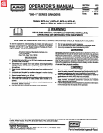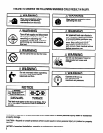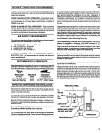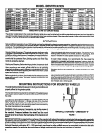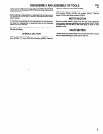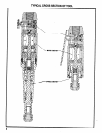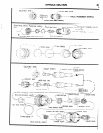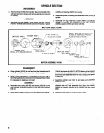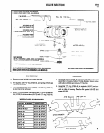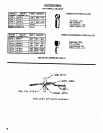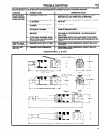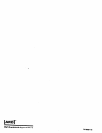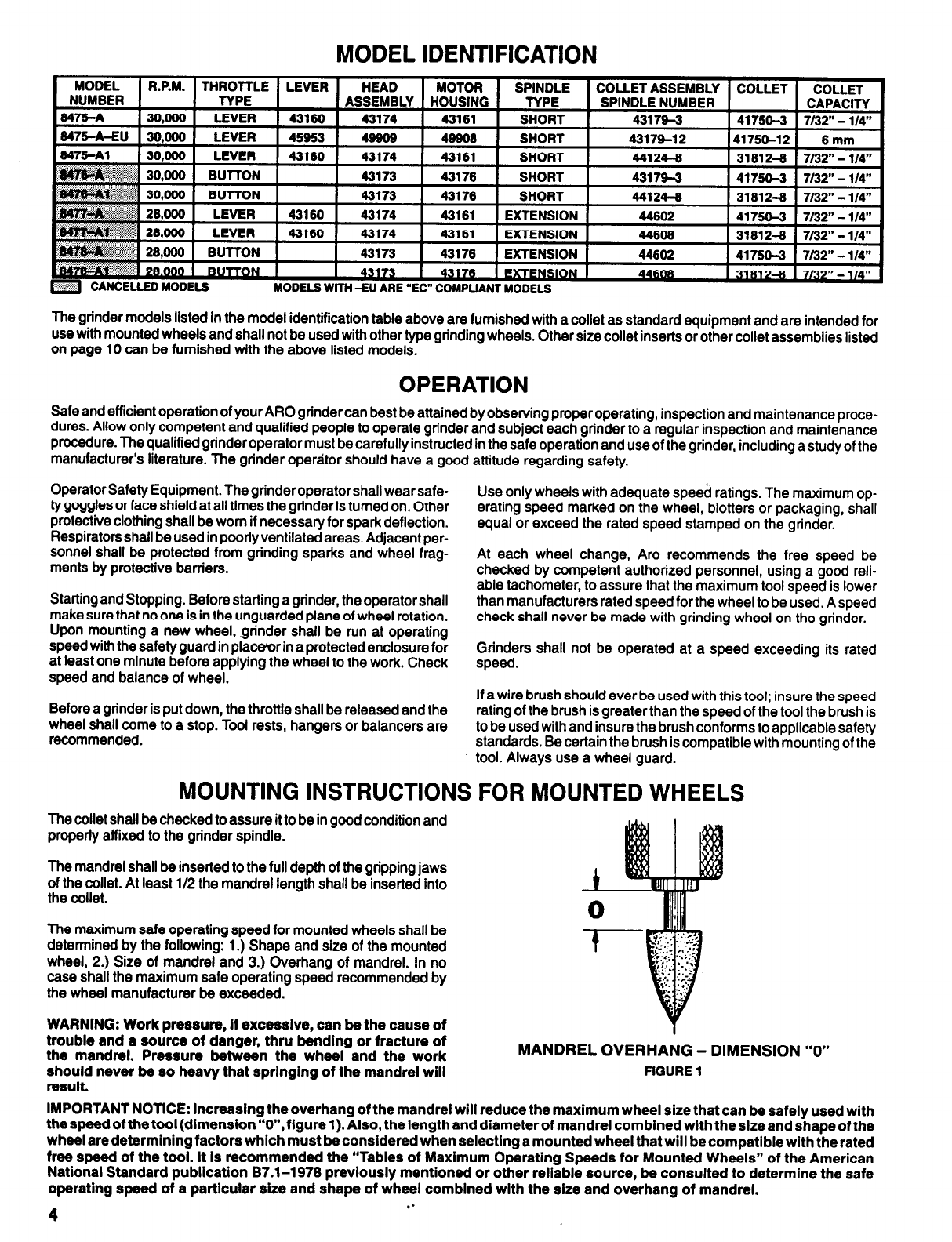
MODEL IDENTIFICATION
The grinder models listed in the model identification table above are furnished with a collet as standard equipment and are intended for
use with mounted wheels and shall not be used with other type grinding wheels. Other size collet inserts or other collet assemblies listed
on page 10 can be furnished with the above listed models.
OPERATION
Safe and efficient operation of your ARO grinder can best be attained by observing proper operating, inspection and maintenance proce-
dures. Allow only competent and qualified people to operate grinder and subject each grinder to a regular inspection and maintenance
procedure. The qualified grinder operator must be carefully instructed in the safe operation and use of the grinder, including a study of the
manufacturer’s literature. The grinder operator should have a good attitude regarding safety.
Operator Safety Equipment. The grinder operator shall wear safe-
ty goggles or face shield at all times the grinder is turned on. Other
protective clothing shall be worn if necessary for spark deflection.
Respirators shall be used in poorly ventilated areas. Adjacent per-
sonnel shall be protected from grinding sparks and wheel frag-
ments by protective barriers.
Starting and Stopping. Before starting a grinder, the operator shall
make sure that no one is in the unguarded plane of wheel rotation.
Upon mounting a new wheel, grinder shall be run at operating
speed with the safety guard in place or in a protected enclosure for
at least one minute before applying the wheel to the work. Check
speed and balance of wheel.
Before a grinder is put down, the throttle shall be released and the
wheel shall come to a stop. Tool rests, hangers or balancers are
recommended.
Use only wheels with adequate speed ratings. The maximum op-
erating speed marked on the wheel, blotters or packaging, shall
equal or exceed the rated speed stamped on the grinder.
At each wheel change, Aro recommends the free speed be
checked by competent authorized personnel, using a good reli-
able tachometer, to assure that the maximum tool speed is lower
than manufacturers rated speed for the wheel to be used. A speed
check shall never be made with grinding wheel on the grinder.
Grinders shall not be operated at a speed exceeding its rated
speed.
If a wire brush should ever be used with this tool; insure the speed
rating of the brush is greater than the speed of the tool the brush is
to be used with and insure the brush conforms to applicable safety
standards. Be certain the brush is compatible with mounting of the
tool. Always use a wheel guard.
MOUNTING INSTRUCTIONS FOR MOUNTED WHEELS
The collet shall be checked to assure it to be in good condition and
properly affixed to the grinder spindle.
The mandrel shall be inserted to the full depth of the gripping jaws
of the Collet. At least 1/2 the mandrel length shall be inserted into
the Collet.
The maximum safe operating speed for mounted wheels shall be
determined by the following: 1.) Shape and size of the mounted
wheel, 2.) Size of mandrel and 3.) Overhang of mandrel. In no
case shall the maximum safe operating speed recommended by
the wheel manufacturer be exceeded.
WARNING: Work pressure, if excessive, can be the cause of
trouble and a source of danger, thru bending or fracture of
the mandrel. Pressure between the wheel and the work
MANDREL OVERHANG - DIMENSION “O”
should never be so heavy that springing of the mandrel will
result.
FIGURE 1
IMPORTANT NOTICE: Increasing the overhang of the mandrel will reduce the maximum wheel size that can be safely used with
the speed of the tool (dimension “O”, figure 1). Also, the length and diameter of mandrel combined with the size and shape of the
wheel are determining factors which must beconsidered when selecting a mounted wheel that will be compatible with the rated
free speed of the tool. It is recommended the “Tables of Maximum Operating Speeds for Mounted Wheels” of the American
National Standard publication B7.1-1978 previously mentioned or other reliable source, be consulted to determine the safe
operating speed of a particular size and shape of wheel combined with the size and overhang of mandrel.



